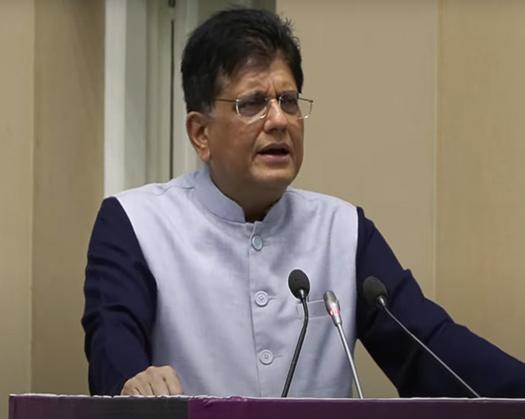Mumbai: Indian stock markets ended in the red on Thursday, with both the Sensex and Nifty closing lower due to concerns regarding currency depreciation and lackluster earnings forecasts, which negatively impacted investor sentiment.
The BSE Sensex dropped by 467.22 points, finishing at 77,681.27, while the Nifty fell by 133.25 points, closing at 23,555.70. Out of the 50 companies listed on the Nifty, 16 saw gains, 34 experienced declines, and one remained unchanged.
Among the top performers on the Nifty were Bajaj Auto, Nestle India, Hindustan Unilever, M&M, and Britannia. In contrast, the biggest losers included ONGC, Shriram Finance, BPCL, Coal India, and Tata Steel.
Overall market sentiment was predominantly negative, with analysts indicating that the market may continue to experience downward pressure in the near term.
VLA Ambala, a SEBI Registered Research Analyst and Co-Founder of Stock Market Today, emphasized that the Indian Rupee (INR) remains a significant concern.
Ambala highlighted that on January 9, the rupee reached a new low of 85.93 against the dollar, primarily driven by strong demand for the dollar, before slightly recovering to trade at 85.89. She suggested that the Reserve Bank of India may have intervened to stabilize the currency.
"Market sentiment is likely to stay bearish until the INR demonstrates signs of recovery. The ongoing Q3 results have lowered market expectations, with forecasts indicating subdued top-line growth for the seventh consecutive quarter and year-on-year margins under pressure. Additionally, Forex advisors have noted that Foreign Institutional Investors (FIIs) continue their selling trend amid global risk aversion and weaker domestic indicators," she stated.
Domestic Institutional Investors (DIIs) have been mitigating some of the selling pressure, with their purchases totaling Rs. 12,614.32 crore in January, in contrast to Foreign Institutional Investors (FIIs) who sold assets worth Rs. 11,931.91 crore.
From a technical standpoint, the Nifty is currently trading approximately 5% below its 20-month exponential moving average (EMA), indicating the possibility of further declines. Ambala recommended that investors consider accumulating value stocks during market dips to achieve better performance than broader market indices.
V K Vijayakumar, Chief Investment Strategist at Geojit Financial Services, stated, "As the Q3 earnings season commences today, market reactions to these results will be significant. The performance of TCS will provide insights into the outlook for the IT sector. Additionally, the robustness of the U.S. economy and the depreciation of the rupee will serve as favorable factors for the IT industry."
He further noted, "Sectors such as premium hotels, jewelry, high-end automobiles, and airlines are expected to report strong performance. Anticipations surrounding President Trump's policy decisions and the upcoming Indian Union Budget proposals are likely to contribute to market volatility in the near term."
The market opened with a cautious tone, as the Sensex fell by 214.33 points or 0.27% to reach 77,934.16, while the Nifty decreased by 55.25 points, trading at 23,633.70.
This cautious market sentiment reflects investor concerns regarding slower economic growth projections and the upcoming Q3 earnings announcements.










